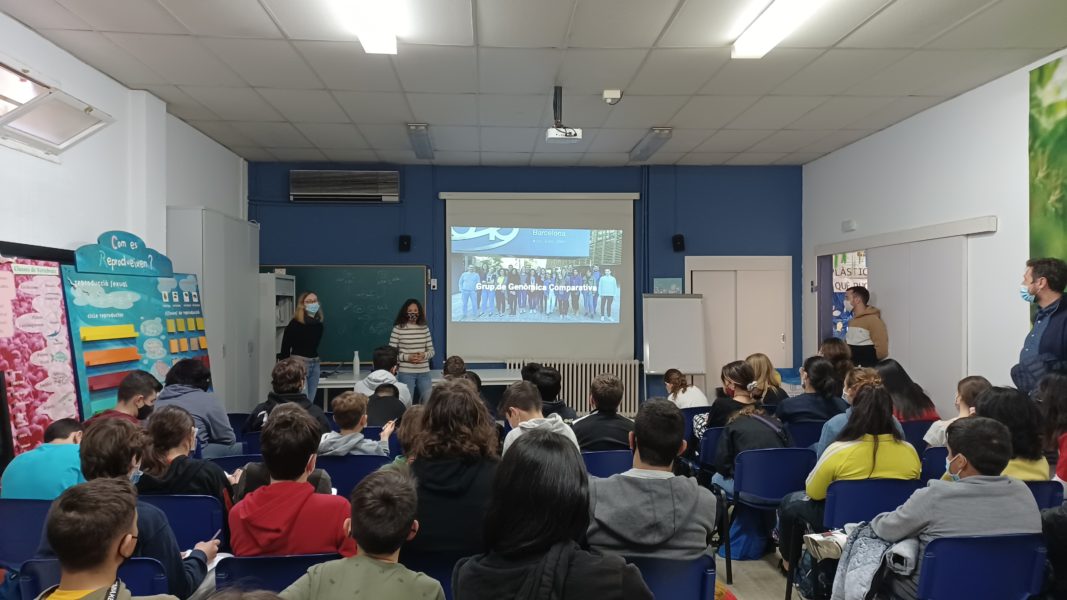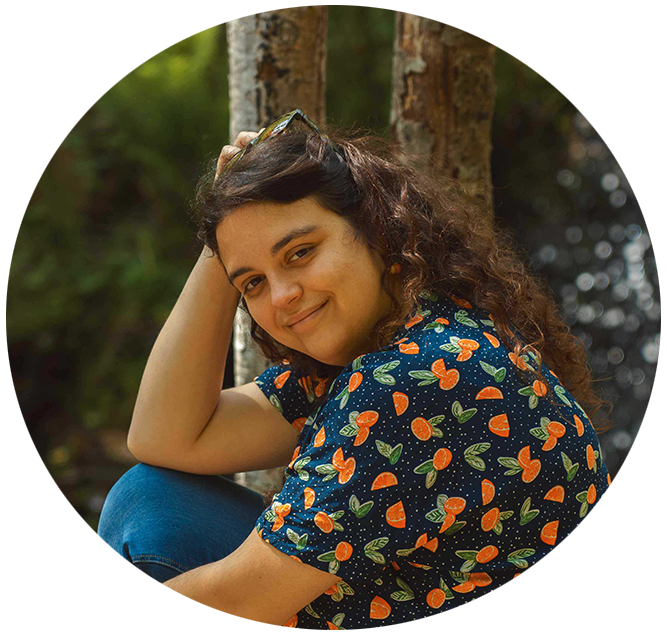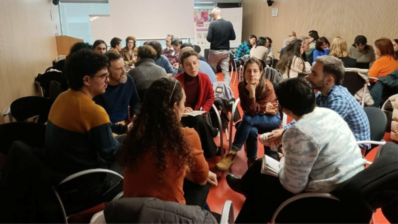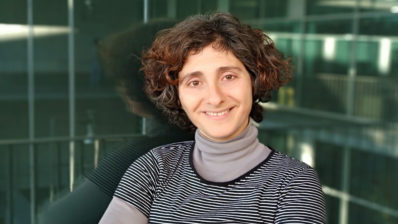The working group Vincles x l’Acció Educativa, from the Pedagogical Innovation Council of the Institute of Culture of Barcelona (CIP) has promoted the co-creation of a shared and innovative educational itinerary with different entities and institutions of the city that are part of the CIP. Through this itinerary, between March and May 2022, the students of the first year of ESO of the Institut Escola Arts have reflected, through participatory dynamics between science and art, on the issues that affect the conservation of biodiversity.
What role should the human species play in the maintenance of ecosystems?
To work on these questions, the students went on three outings to deal with different topics:
- An outing to the Barcelona Zoo focused on terrestrial biodiversity and empathy, with the collaboration of the Institute of Evolutionary Biology (IBE: CSIC-UPF) located in the Barcelona Biomedical Research Park (PRBB).
- A visit to the Center for the Recovery of Marine Animals (CRAM) addressing marine biodiversity and changes in perspective with the collaboration of Anèl·lides, Serveis Ambientals Marins.
- And a closing session at the National Theater of Catalonia (TNC) to elaborate a communicative product representing the knowledge acquired in the previous sessions.

The itinerary
The itinerary – baptized as «Invasive plants, are they the evil ones?» by the participating students – aims to be a journey that allows to load one’s baggage with questions and fill it with experiences and learning, integrating, in a transversal way, competences from the scientific-technological, artistic, personal, social and cultural fields. And always accompanied by professionals from art and science world.
Once the pilot test was completed, all the personnel involved in the development of the itinerary met to discuss the strengths and weaknesses of the activities. The results are encouraging, as explained by Mònica Rodríguez, from the Institutional Relations and Outreach department of the PRBB:
It has been an enriching experience for everyone who has participated from the entities. It has been a long road of more than two (pandemic) years of virtual meetings to conceptualize the project. But the hours invested and the success of the pilot test were worth it.
Mònica Rodríguez (PRBB)
Knowing the strengths and weaknesses of the itinerary, it will be possible to implement the changes and improvements that students and teachers have proposed and thus evaluate the suitability of the project to be part of the activities of the School Activities Program (PAE) of the next academic year 2022-2023.
“Despite the initial difficulty in finding a good fit between the diverse entities, we have achieved a unique, versatile and transversal educational product. In addition, we have been able to consolidate a working group with such a good vibe that, for sure, will allow us to do great things”, concludes Mònica Rodríguez.
This project has had the support of the Pedagogical Innovation Council and the collaboration of the Faculty of Psychology, Educational Sciences and Sports Blanquerna – Ramon Llull University.







